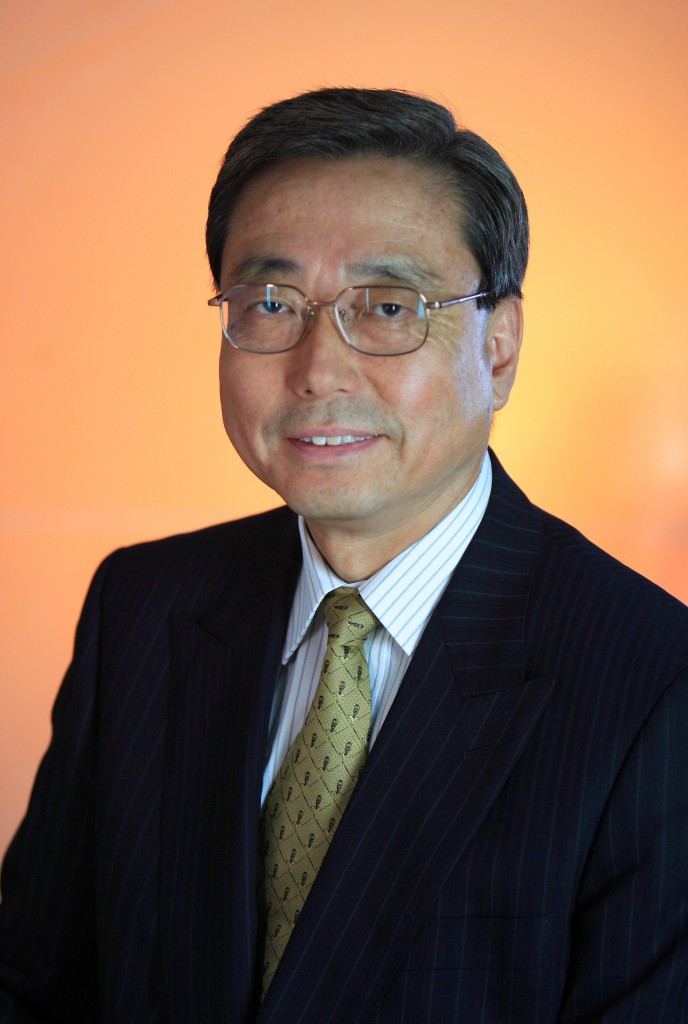ITER NEWSLINE
112
We are ready for take-off
Kaname Ikeda, ITER Director-General
We are ready for take-off

Kaname Ikeda
In February, the first five postdoctoral fellows sponsored by His Serene Highness Prince Albert of Monaco arrived on site, and since then they have all made extremely valuable contributions to the project. The Prince is expected to come and visit ITER early in January 2010. March followed with its own lot of good news, as the US Congress agreed to grant $124 million to US ITER out of President Obama's stimulus package, allowing our colleagues across the Atlantic to proceed with their work and to deliver their contributions to the ITER Project.
Thanks to the steady management of Agence Iter France, the levelling works for the 42-hectare platform that will hold the tokamak and its technical infrastructure were completed this summer and we expect the first buildings to emerge out of the ground this coming spring. The European Domestic Agency "Fusion for Energy," which is responsible for the buildings, opened a first outpost in the ITER Headquarters with five permanent staff, who will be joined by four others early 2010. The construction of Joint Work Site III that will house about 200 more staff coming from Barcelona is progressing well, as you will see in this week's article and video Construction—fast forward."
In other construction news, the 106-kilometre itinerary leading from Fos-sur-Mer, where the heavy components will arrive from overseas to Cadarache, is also almost finished. By mid-2010, we will be able to witness the first test convoys passing the reinforced or newly-built roads and bridges thanks to the contributions from the the Regional Council of Provence-Alpes-Côte d'Azur (PACA).
In September, the building housing the elementary classes of the International School in Manosque opened its doors; 281 children attend the school that has been operational for three years now. The masterminds behind the school's new face are the architects Rudy Ricciotti and Jean-Michel Battesti. Their revolutionary idea of "bringing nature into the school" was realized—again—thanks to an investment of EUR 55 million from the PACA region.
Only this month, the ITER CLI (Commission Locale d'Information) was established, an independent body serving as an interface between the ITER Organization as nuclear operator and the local population. This is another major step in our licensing process, which will be followed by a public enquiry next year.
So far, so good. In my New Year's address one year ago, I said that 2009 would be a decisive year for ITER—a year full of great expectation. And I presume that you will all agree that my prediction proved to be right. This year was extremely challenging for all of us, especially in preparation of the draft Baseline for the ITER Council in November. We achieved a lot in this process but did not quite succeed in finalizing it. Based on what we hold in hand, we will continue to work on an updated schedule that is acceptable to all Members, leading to the establishment of the ITER Baseline by June next year.
This discussion over the ITER Project's schedule and cost issues is certainly essential, but it tends to make us overlook progress made in other areas, and the fact that, indeed, we are performing well. The ITER family has grown impressively—we are now 430 permanent staff and many more subcontractors—and we now need to hold two sessions in the CEA's largest auditorium in order to be able to address all staff members.
Also, this year we placed almost 600 contracts with industry and contractors this year worth EUR 156.4 million. And we signed 18 Procurement Arrangements with the Domestic Agencies for many of the long-leading items such as the vacuum vessel and the upper ports, the conductors, the cooling water system and the power supplies for ITER's powerful neutral beams. In total, we have now signed 30 Procurement Arrangements for a total of EUR 1.77 billion committed to date representing 40 percent of the total investment.
The news reaching us from the European fusion labs and overseas documenting the progress that is being made keep reminding us that ITER is a truly multi-national endeavour. It is encouraging to see the enthusiasm with which the international fusion community responds to ITER's needs, and to witness the progress made in our Member states helping ITER to take shape and finally evolve from paper to steel and concrete.
The path forward is exciting and it will certainly require all our strength and endurance to face the challenges ahead. But before we do so, let's take some time off to relax and enjoy our friends and family. I wish you all a peaceful and restful holiday, see you back in the New Year.
return to Newsline #112


